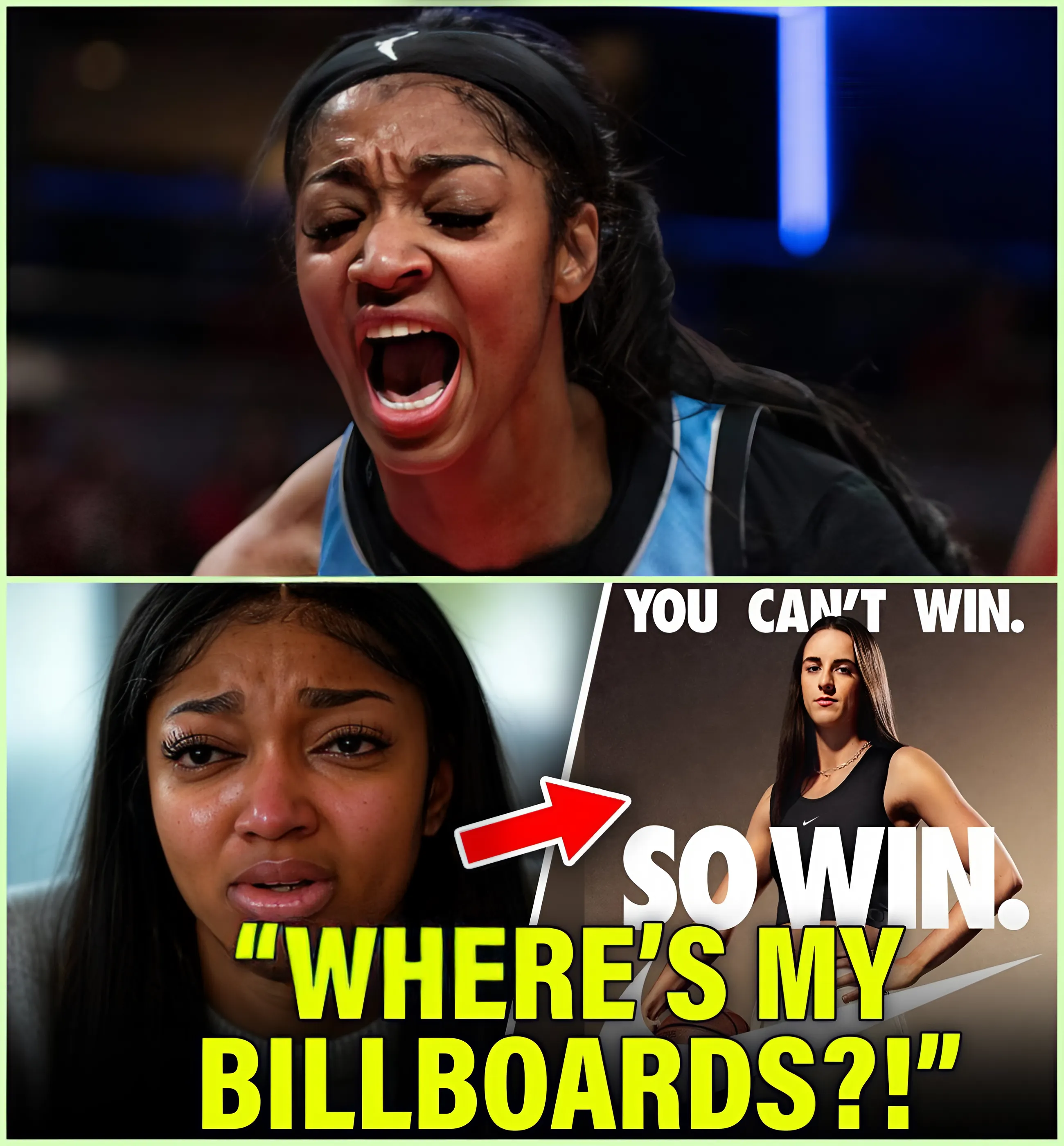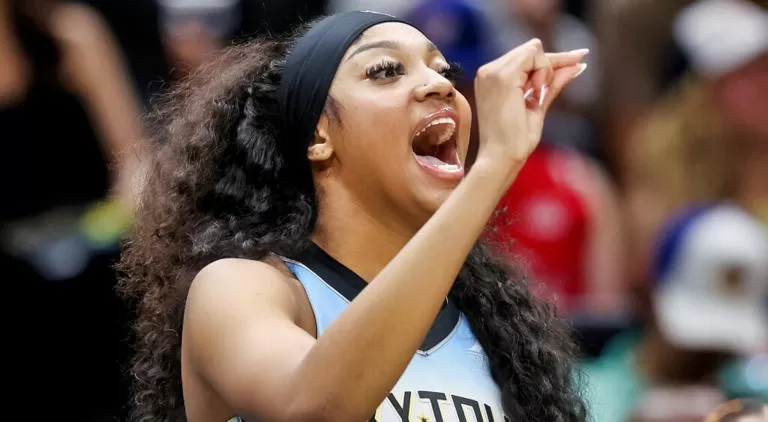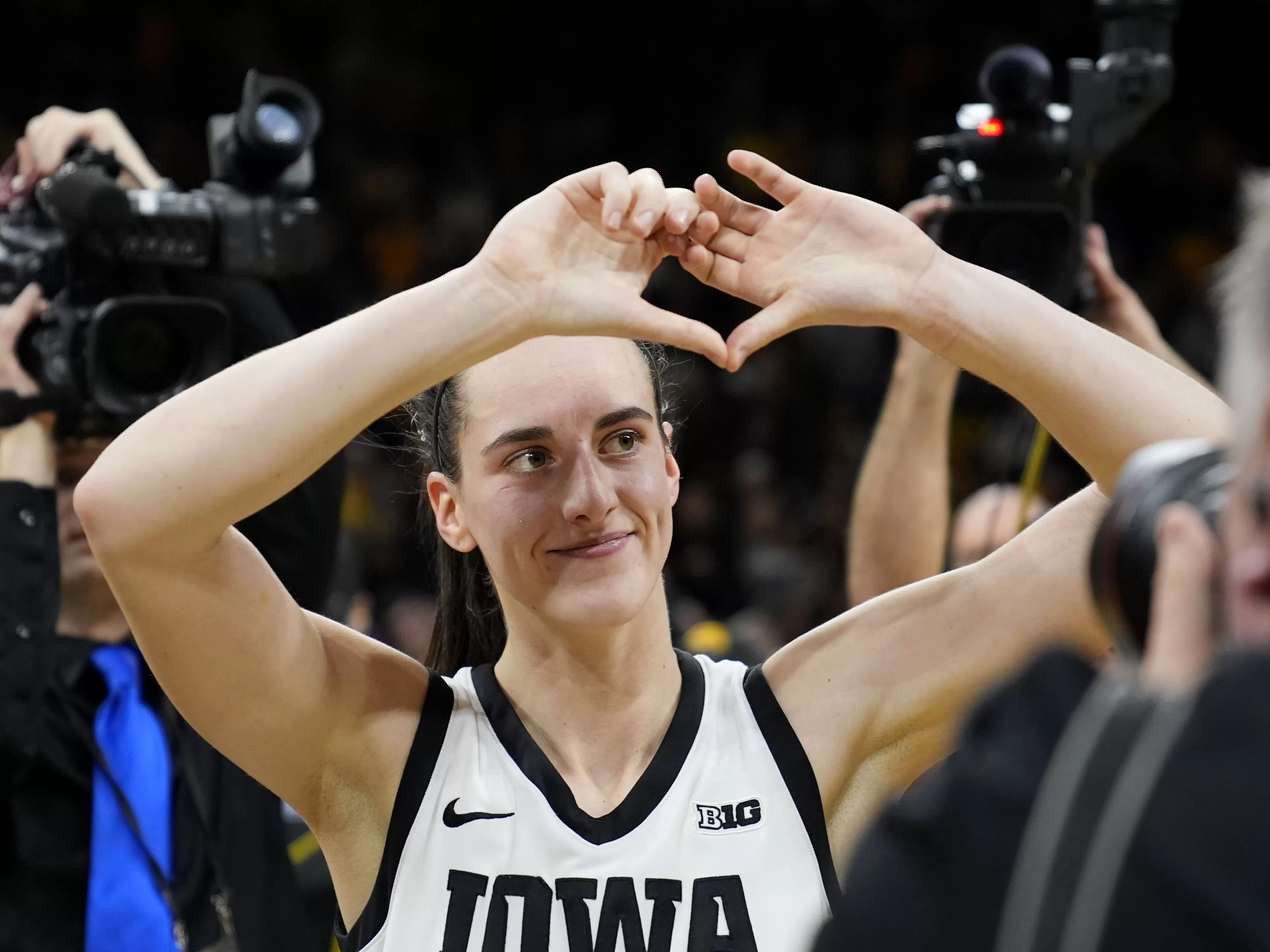In the world of college basketball, few rivalries have captured the attention of fans like the one between LSU’s Angel Reese and Iowa’s Caitlin Clark. These two talented athletes have not only brought their respective teams to the forefront of women’s sports but have also found themselves at the center of a firestorm of media attention. Recently, this rivalry reached a new height, as Chicago trolled Angel Reese with massive billboards featuring Caitlin Clark. The result? A dramatic meltdown that has ignited both the sports world and social media in ways no one could have predicted.

The rivalry between Angel Reese and Caitlin Clark has been building for months. Both players are incredibly skilled, with Reese dominating the paint and Clark lighting up the scoreboard with her sharpshooting ability. However, things took an unexpected turn during the NCAA Women’s Basketball Championship in April 2023. LSU’s Angel Reese and Iowa’s Caitlin Clark had a heated encounter during the title game, which LSU won. Reese’s now-infamous “You can’t see me” gesture toward Clark, mimicking WWE legend John Cena, became the focal point of post-game discussion, with debates flaring up across sports media and social platforms.
While Reese’s gesture was seen as a playful taunt by some, others interpreted it as disrespectful. The media frenzy that followed led to heightened tensions between the two players, both of whom received intense scrutiny and support from different factions of the fanbase. Fast forward to February 2025, and the rivalry was far from over—yet the latest chapter of this saga is perhaps the most jaw-dropping one yet.
In a move that many viewed as a masterclass in trolling, Chicago decided to go all-in on the Caitlin Clark vs. Angel Reese saga. Out of nowhere, a series of large, eye-catching billboards featuring Caitlin Clark in her Iowa uniform went up across various locations in the city. The billboards, complete with playful captions such as “The Real Champion” and “Bow Down to the Queen,” sparked immediate outrage from Reese’s supporters and left many fans and media outlets questioning the motives behind such an audacious act.

The Chicago-based advertising campaign was clearly designed to stir up trouble. The timing was impeccable, coinciding with the build-up to the annual NCAA women’s basketball tournament, and many believed it was a calculated effort to stoke the fire of the ongoing feud between Reese and Clark. What was perhaps the most eye-popping aspect of the billboards was their message—it wasn’t just about promoting Caitlin Clark; it was about undermining Angel Reese. The city’s bold move quickly drew reactions from both sides, with Reese herself taking to social media to express her anger and frustration.
The billboards sent shockwaves through the basketball world, but it was Angel Reese’s response that truly stole the headlines. Reese, who has always been outspoken and unapologetic, did not hold back in her reaction. On Twitter, she posted a scathing message aimed at the city of Chicago, calling the billboards “disrespectful” and accusing the city of trying to “drag her name through the mud.”
Reese’s meltdown was swift, fiery, and, for many, a rare glimpse into the intense pressure athletes face when they become the center of public controversy. Her tweet quickly went viral, and within hours, sports media outlets picked up on the drama. The hashtag #TeamReese began trending, with fans rallying behind her. Many supported Reese’s stance, viewing the billboards as an unnecessary and personal attack.
The tension surrounding the incident only intensified when Caitlin Clark herself weighed in. While Clark acknowledged the billboards, she maintained that she had nothing to do with the campaign and expressed sympathy for Reese. However, Clark also made it clear that she would not back down from the competition on the court. This only fueled the fire, as fans on both sides dug their heels in deeper.
While the billboards themselves were undoubtedly a bold and controversial move, the situation raises deeper questions about the influence of media, the role of fan bases, and the fine line between competition and personal attacks in sports. The rivalry between Reese and Clark is about much more than just basketball; it’s about branding, identity, and the narrative that the media creates around athletes.

In today’s sports landscape, athletes are not only competing on the court but also navigating a world where every move they make is scrutinized, amplified, and often used to fuel further drama. The billboards in Chicago represent a new wave of sports trolling, where cities, fans, and media outlets are increasingly using their platforms to make bold statements. Whether it’s to support a player, create controversy, or simply generate buzz, these moves can have lasting impacts on both the players involved and the fans who follow them.
As the feud between Angel Reese and Caitlin Clark continues to escalate, the future of their rivalry remains uncertain. Will the two players reconcile? Or will their competitive fire continue to burn brighter as the media fans the flames? The Chicago billboards have certainly added a new layer to an already complex relationship, and it’s clear that the drama surrounding Reese and Clark is far from over.
One thing is for sure: in the world of sports, rivalries like this don’t come along every day. Whether you’re rooting for Reese, Clark, or simply enjoying the spectacle, one thing is certain—the next chapter in this saga promises to be just as unpredictable, entertaining, and intense as the one that came before.
News
“So happy…” Justin Bieber speaks out about his relationship with Cardi B after romantic video leaks – The truth is revealed about Haley Bieber’s recent unfollows!
In an explosive turn of events, pop sensation Justin Bieber has broken his silence regarding his relationship with rapper Cardi B after a leaked romantic video of the two sparked rumors of an affair, leaving fans, media, and even his…
BREAKING NEWS: Worldwide chaos erupted last night when Elon Musk released the uncensored list and pictures of all the stars involved with Diddy: ‘Everyone has the right to know.’
In a dramatic turn of events, the entertainment world was rocked last night by Elon Musk’s unexpected release of an uncensored list and accompanying pictures detailing the connections between various celebrities and music mogul Sean “Diddy” Combs. This revelation has…
BROKEN MIRROR MENDED: Cardi B and Offset’s apology night turns into a disaster and Cardi B smashes a wine bottle on Offset’s head
In what was supposed to be a quiet evening of reconciliation, Cardi B and Offset’s much-anticipated apology nightturned into a dramatic spectacle that left fans and media outlets buzzing with surprise. The couple, who have weathered many storms in the public eye, had announced…
“I’m the happiest person”: Asap Rocky couldn’t hide his joy when he revealed that his wife, Rihanna, is eight weeks pregnant with twins. He shared 9 special quotes about his wife, making people not only share their joy but also moved to tears.
LOS ANGELES, CALIFORNIA — In a world where celebrity headlines are often filled with scandal or speculation, one story is warming hearts across the globe: A$AP Rocky has announced that Rihanna, his wife and global music icon, is eight weeks pregnant —…
I CAN’T TAKE IT ANYMORE 🤕 CARDI B SHOCKS 8 WORDS AT KIM KARDASHIAN AFTER ANNOUNCEDING HER WITHDRAWAL FROM SHOWBIZ FOR UNEXPECTED REASONS
In a world where celebrity news often dominates headlines, Cardi B’s recent announcement has sent shockwaves through the entertainment industry. Known for her bold personality and chart-topping hits, Cardi B has always been a force to be reckoned with. However,…
“EVERYTHING IS OVER”ASAP ROCKY speaks for the first time about life after retirement, revealing two SHOCKING words about his family that surprised everyone.
In a candid and heartfelt interview, A$AP Rocky recently shared insights into his life after retirement, offering fans a glimpse into his personal world. Known for his dynamic presence in the music industry and his influential style, A$AP Rocky has…
End of content
No more pages to load











